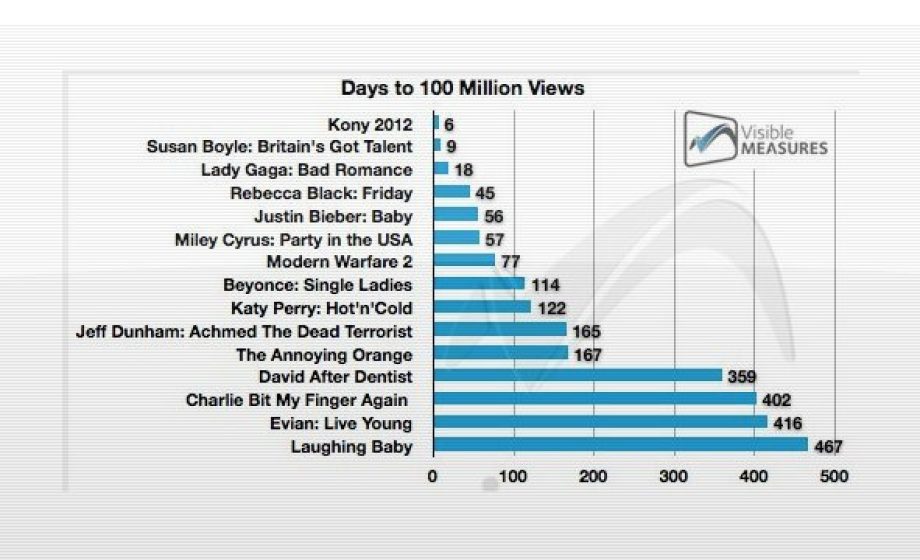In the 7-day span since last week’s Rude VC column, the digital world has witnessed the fastest growing video campaign in the history of social media.
I’m of course referring to the Kony2012 short film produced by Invisible Children. The human rights organization launched a video with a sole objective to render famous and agitate for the arrest of Joseph Kony, head of the Lord’s Resistance Army, abuser of child soldiers, and international war criminal #1. As of last night, the Kony2012 video has surpassed 100 million views (source: Visible Measures).
I’ve found this phenomenon fascinating, and not solely because of its welcome spotlight on a continent-wide topic directly involving another young man I’ve had the honor of knowing (for further reading on the subject, I recommend Ishmael Beah’s first-hand account of his experience as a child soldier in Sierra Leone).
It feels like we’re approaching another inflection point, in which social media is elevating citizen activism to a level which obliges politicians to act.
Like any larger-than-life movement, an inevitable backlash movement does not trail far behind. In the West, the two camps seem to fall along generational lines. In Uganda and much of the African diaspora, the video campaign feels more like Rudyard Kipling’s condescending 19th century poem, “The White Man’s Burden,” and understandably so (for an excellent perspective on the nuanced issue, I recommend you start reading here).
But even if iPad-touting youth in the West are re-tweeting video links and buying t-shirts so that they can feel better about themselves, you cannot condemn their intentions. I’d much rather see virality on a complex, geopolitical topic like this than the traditional allocation of mindshare to the Kardashian sisters. And Kony2012 does seem to be encouraging many people to research the complex topic more thoroughly.
Regardless of your opinion on the worthiness of the cause of hunting Joseph Kony, or on the agenda of the Invisible Children organization, one fact is undeniable: the momentum generated by the Kony2012 campaign has forced politicians worldwide to take a position on a human rights issue that they likely would have ignored in a previous era.
I submit that we’re only beginning to understand the approaching sea change of civic activism enabled by technology and the network effects of social media.
In addition to being the year of Joseph Kony, 2012 will also mark presidential elections among 3/5ths of the UN Security Council permanent members: the U.S., Russia, and France. In the first, President Barack Obama counts almost 13 million Twitter followers and boasts a whopping 91 for a Klout score. The second withnessed an unprecedented expression of public outcry, with grass roots solidarity largely enhanced by Facebook and Twitter during its election last week. And here in France, politicians have underscored the power posed by social media in their curious zeal to censor it.
We may not yet have reached the year in which digital activism tips an election, but the day is near for when it is the politician who is not necessarily the best-financed, but rather who best masters the power of social media that wins.


